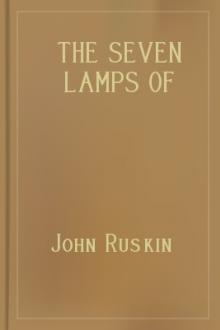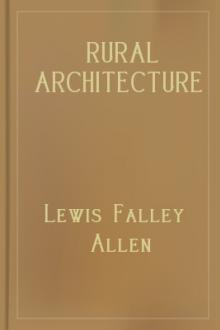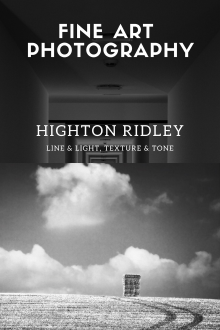Genre Art. Page - 1

company as believing in an Eternal life, and endeavour to draw any conclusions, from this assumed belief, as to their present business, they will forthwith tell you that what you say is very beautiful, but it is not practical. If, on the contrary, you frankly address them as unbelievers in Eternal life, and try to draw any consequences from that unbelief,--they immediately hold you for an accursed person, and shake off the dust from their feet at you. And the more I thought over what I had got to say, the less I found I could say it, without some reference to this intangible or intractable part of the subject. It made all the difference, in asserting any principle of war, whether one assumed that a discharge of artillery would merely knead down a certain quantity of red clay into a level line, as in a brick field; or whether, out of every separately Christian-named portion of the ruinous heap, there went out, into the smoke and dead-fallen air of battle, some astonished condition of soul, unwillingly released

pretended that all, or even the greater number of, the principles necessary to the well-being of the art, are included in the inquiry. Many, however, of considerable importance will be found to develope themselves incidentally from those more specially brought forward.
Graver apology is necessary for an apparently graver fault. It has been just said, that there is no branch of human work whose constant laws have not close analogy with those which govern every other mode of man's exertion. But, more than this, exactly as we reduce to greater simplicity and surety any one group of these practical laws, we shall find them passing the mere condition of connection or analogy, and becoming the actual expression of some ultimate nerve or fibre of the mighty laws which govern the moral world. However mean or inconsiderable the act, there is something in the well doing of it, which has fellowship with the noblest forms of manly virtue; and the truth, decision, and temperance, which we reverently regard as honor

f uraei and cartouches
107. Wall-scene from temple of Denderah
108. Obelisk of Heliopolis, Twelfth Dynasty
109. Obelisk of Begig, Twelfth Dynasty
110. "Table of offerings" from Karnak
111. Limestone altar from Menshîyeh
112. Wooden naos, in Turin Museum
113. A mastaba
114. False door in mastaba
115. Plan of forecourt, mastaba of Kaäpir
116. Plan of forecourt, mastaba of Neferhotep
117. Door in mastaba façade
118. Portico and door of mastaba
119. Plan of chapel, mastaba of Khabiûsokari
120. Plan of chapel, mastaba of Ti
121. Plan of chapel, mastaba of Shepsesptah
122. Plan of chapel, mastaba of Affi
123. Plan of chapel, mastaba of Thenti
124. Plan of chapel, mastaba of Red Scribe
125. Plan of chapel, mastaba of Ptahhotep
126. Stela in mastaba of Merrûka
127. Wall-scene from mastaba of Ptahhotep
128. Wall-scene from mastaba of Ûrkhûû
129. Wall-scene from mastaba of Ptahhotep
130. Plan of serdab in mastaba at Gizeh
131. Plan of serdab and

Jasmine, Carolina Separation.
Jasmine, Indian I attach myself to you.
Jasmine, Spanish Sensuality.
Jasmine, Yellow Grace and elegance.
Jonquil I desire a return of affection.
Judas Tree Unbelief. Betrayal.
Juniper Succour. Protection.
Justicia The perfection of female loveliness.
[Illustration]
Kennedia Mental Beauty.
King-cups Desire of Riches.
[Illustration]
[Illustration]
[Illustration]
Laburnum Forsaken. Pensive Beauty.
Lady's Slipper Capricious Beauty. Win me and wear me.
Lagerstræmia, Indian Eloquence.
Lantana Rigour.
Larch Audacity. Boldness.
Larkspur Lightness. Levity.
Larkspur, Pink Fickleness.
Larkspur, Purple Haughtiness.
Laurel Glory.

d when writing the present tale, the gratuities received yearly by the musicians at Christmas were somewhat as follows: From the manor-house ten shillings and a supper; from the vicar ten shillings; from the farmers five shillings each; from each cottage-household one shilling; amounting altogether to not more than ten shillings a head annually--just enough, as an old executant told me, to pay for their fiddle-strings, repairs, rosin, and music-paper (which they mostly ruled themselves). Their music in those days was all in their own manuscript, copied in the evenings after work, and their music-books were home-bound.
It was customary to inscribe a few jigs, reels, horn-pipes, and ballads in the same book, by beginning it at the other end, the insertions being continued from front and back till sacred and secular met together in the middle, often with bizarre effect, the words of some of the songs exhibiting that ancient and broad humour which our grandfathers, and possibly grandmothers, took delight i

d will answer his purposes.
The plans and directions submitted in this work are intended to be of the most practical kind; plain, substantial, and applicable, throughout, to the purposes intended, and such as are within the reach--each in their kind--of every farmer in our country. These plans are chiefly original; that is, they are not copied from any in the books, or from any structures with which the writer is familiar. Yet they will doubtless, on examination, be found in several cases to resemble buildings, both in outward appearance and interior arrangement, with which numerous readers may be acquainted. The object, in addition to our own designs, has been to apply practical hints, gathered from other structures in use, which have seemed appropriate for a work of the limited extent here offered, and that may serve to improve the taste of all such as, in building useful structures, desire to embellish their farms and estates in an agreeable style of home architecture, at once pleasant to the eye, a

is because the finest natures remain young to the death: and for you the first thing you have to do in art (as in life) is to be quiet and firm--quiet, above everything; and modest, with this most essential modesty, that you must like the landscape you are going to draw better than you expect to like your drawing of it, however well it may succeed. If you would not rather have the real thing than your sketch of it, you are not in a right state of mind for sketching at all. If you only think of the scene, "what a nice sketch this will make!" be assured you will never make a nice sketch of it. You may think you have produced a beautiful work; nay, perhaps the public and many fair judges will agree with you; but I tell you positively, there will be no enduring value in what you have thus done. Whereas if you think of the scene, "Ah, if I could only get some shadow or scrawl of this to carry away with me, how glad I should be!"--then whatever you do will be, according to your strength, good and progressive: it m

way of defining Beauty which grounds it in general principles,while allowing it to reach the concrete case, is set forth inthe essay on the Nature of Beauty. The following chapters aimto expand, to test, and to confirm this central theory, byshowing, partly by the aid of the aforesaid special studies,how it accounts for our pleasure in pictures, music, andliterature.
The whole field of beauty is thus brought under discussion;and therefore, though it nowhere seeks to be exhaustive intreatment, the book may fairly claim to be a more or lessconsistent and complete aesthetic theory, and hence toaddress itself to the student of aesthetics as well as to thegeneral reader. The chapter on the Nature of Beauty, indeed,will doubtless be found by the latter somewhat technical, andshould be omitted by all who definitely object to professionalphraseology. The general conclusions of the book aresufficiently stated in the less abstract papers.
Of the essays which compose the following volume, the f

